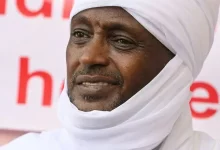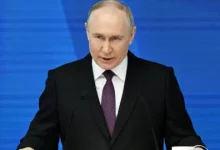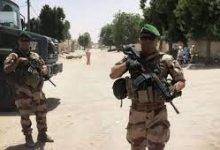
Mohamed Hamdan “Hemeti” Dagolo is the vice-president of Sudan’s ruling military junta and, at present, probably the most powerful man in Sudan.
He has the potential to shape the future of a broken country, but as the commander of one of Sudan’s most prominent paramilitary forces, he leaves a trail of human rights abuse allegations from Darfur in his wake and has recently been accused of allowing those same forces to kill demonstrators in Khartoum.
Hemeti has said that the use of force was necessary in Darfur in order to protect its civilians and an “independent investigation” will be launched into the military’s use of violence in Khartoum. Any person who had “crossed boundaries” would be punished, he said.
But he also defended the violence suppressing the protesters, explaining they had been infiltrated by rogue elements and drug dealers, and firm action was warranted.
“We will not allow chaos and we will not go back on our convictions,” he said. “There is no way back. We must impose the respect of the country by law.”
Hemeti was a close political ally of Sudan’s former President Omar al-Bashir, but as protests against the former leader escalated in December, his loyalty soon wavered.
When demonstrations in Khartoum began, Hemeti was the first high-ranking official to express his support, telling the government to “provide services and decent living to the people”.
He said “the corrupt, whoever they are, should be referred to justice,” the state-owned Sudanese News Agency reported on December25 .
Hemeti switched sides to force the president out of power on 11 April and was named vice-president of Sudan’s Transitional Military Council (TMC) two days later.
Although the TMC’s president is Abdel Fattah al-Burhan, Hemeti is the one at the forefront of negotiations with Western diplomats.
He is reportedly supported by the politicians who created the Janjaweed, the militia comprising of Arab groups who sowed fear into residents of the Darfur region of western Sudan during the conflict there.
BBC Africa editor Fergal Keane calls Hemeti “the most likely leader of a counter-revolution” and an “outsider” in the military elite.
Another factor behind Hemeti’s power is his support from regional allies: Egypt, Saudi Arabia and the United Arab Emirates. –BBC




